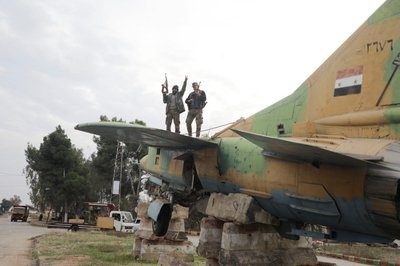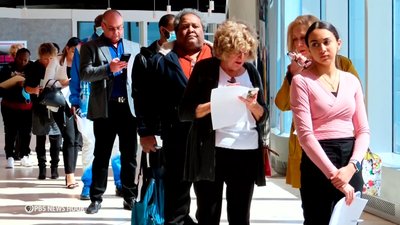SUMMARY
For more than half a century, Syria had been ruled with an iron fist by the Assad regime. It all came to an end this weekend with lightning speed, as rebels took control of the capital city of Damascus, and with it, the country. What lies ahead now for Syria and the Middle East is an open question. Hassan Hassan, founder and editor in chief of New Lines magazine, joins John Yang to discuss.
View the transcript of the story.
News alternative: Check out recent segments from the NewsHour, and choose the story you’re most interested in watching. You can make a Google doc copy of discussion questions that work for any of the stories here.
WARM-UP QUESTIONS
- Where is Syria, and what are some neighboring countries? (You can use this map to help answer)
- When did the current rebellion against Bashar Assad and the Syrian government begin?
- How did President Biden react to the fall of Assad?
- Who is Hassan Hassan, and what is his background?
- Why has the current rebel leadership succeeded, according to Hassan?
FOCUS QUESTIONS
What role, if any, do you think the U.S. should take to stabilize Syria and the larger region?
Media literacy: Who else would you want to hear from the better predict what will come next in Syria?
Alternative: See, Think, Wonder: What did you notice? What did the story make you think? What would you want to learn more about?
FOR MORE
What students can do: Discuss — How do you think the fall of Assad might impact the rest of the world? As a class, discuss how rebel takeover of Syria might impact other geopolitical conflicts and challenges, including:
- The fate of Syrian refugees in Europe, Asia and elsewhere.
- Israel's actions in Gaza, Lebanon and Syria.
- Iran's actions in the Middle East.
- The war in Ukraine.
- U.S. foreign policy and diplomacy.
To help you understand some of the potential fallout, you may want to read this article (written before the fall of Assad).

Fill out this form to share your thoughts on Classroom’s resources.





